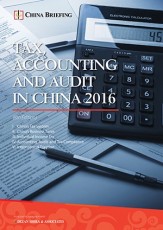China Regulatory Brief: Transition Period for Cross Border e-Commerce Extended and Internet Security and Private Education Laws Adopted
Transition period for new cross-border e-commerce policies to be extended to late next year
On November 15, 2016, the Ministry of Commerce (MOFCOM) announced that the transition period for cross-border e-commerce would be extended to late 2017 in order to facilitate the introduction of the new regulatory model for such activities. Originally, the State Council approved that from May 11, 2016, a one year period would be provided for the transition to the full implementation of the cross-border e-commerce pilot program on all retail imports, which is currently applicable to bonded goods purchased online entering China via Shanghai, Tianjin, Hangzhou, Ningbo, Zhengzhou, Guangzhou, Shenzhen, Chongqing, Fuzhou, and Pingtan. Customs declaration forms for items entering these ports will temporarily not be checked, and requirements on first import licenses, registration, or archival filing will also be temporarily suspended for cosmetics, infant formula, medical instruments, special food (including dietary supplements and special formula food for medical use).
Electronic database platform for HR and social security certification to be launched by 2020
The Ministry of Human Resources and Social Security (MOHRSS) has issued a notice detailing an initiative to combine IT, HR, and social security information into an electronic portfolio by 2020. Information regarding employment experience, vocational skills training, insurance purchase and payment, benefits and compensation, wages and income, rights guarantees, awards and incentives, and other relevant information will be collected and filed as an electronic portfolio in an archive database. It expands that certification and verification materials of relevant requirements such as vocational qualification certificates, technical profession qualification certificates, vocational school diplomas, and employment and entrepreneurship certificates will be accessible by other governmental departments and social institutions for purposes of employment, insurance and job recruitment enquiries.
![]() RELATED: Tax and Compliance Services from Dezan Shira & Associates
RELATED: Tax and Compliance Services from Dezan Shira & Associates
Internet security law and private education promotion law adopted
The 24th session of the Standing Committee of the 12th National People’s Congress has voted to adopt the internet security law, which will come into effect on June 1, 2017, and amendments to the private education law, which will come into effect on September 1, 2017. The internet security law further defines the scope of IT infrastructure facilities that house key information, and imposes punishment measures on overseas organizations and individuals who attack or bring harm to such facilities, as well as punishment for new types of illegal activities such as internet fraud. Personal information and key data collected and generated within China by the operators of IT infrastructure facilities should be stored within China. If any information needs to be provided to overseas entities, this should be done so according to the measures formulated by the department of cyberspace affairs. Meanwhile, the amended private education law details that not-for-profit private schools are allowed to engage in compulsory education. For newly established or expanded not-for-profit private schools, the government provides the same treatment enjoyed by public schools, namely preferential land policies, such as land allocation, and preferential tax policies.
MOFCOM to abolish 16 regulations
MOFCOM has conducted a cleanup of rules and regulations in order to simplify and standardize its services, deciding to annul 16 regulations, including: Regulations for Contracted Operation of Chinese-Foreign Equity Joint Ventures, Interim Measures for the Joint Annual Inspection of Overseas Investments, Measures for the Administration on Foreign Investment in Commercial Fields, Supplementary Regulations on the Measures for the Administration on Foreign Investment in Commercial Fields (Article 1-6), and Interim Provisions on Establishment of Convention & Exhibition Companies with Foreign Investment.
|
Asia Briefing Ltd. is a subsidiary of Dezan Shira & Associates. Dezan Shira is a specialist foreign direct investment practice, providing corporate establishment, business advisory, tax advisory and compliance, accounting, payroll, due diligence and financial review services to multinationals investing in China, Hong Kong, India, Vietnam, Singapore and the rest of ASEAN. For further information, please email china@dezshira.com or visit www.dezshira.com. Stay up to date with the latest business and investment trends in Asia by subscribing to our complimentary update service featuring news, commentary and regulatory insight.
|

 Tax, Accounting, and Audit in China 2016
Tax, Accounting, and Audit in China 2016
This edition of Tax, Accounting, and Audit in China, updated for 2016, offers a comprehensive overview of the major taxes that foreign investors are likely to encounter when establishing or operating a business in China, as well as other tax-relevant obligations. This concise, detailed, yet pragmatic guide is ideal for CFOs, compliance officers and heads of accounting who must navigate the complex tax and accounting landscape in China in order to effectively manage and strategically plan their China-based operations.
 An Introduction to Doing Business in China 2016
An Introduction to Doing Business in China 2016
Doing Business in China 2016 is designed to introduce the fundamentals of investing in China. Compiled by the professionals at Dezan Shira & Associates in June 2016, this comprehensive guide is ideal not only for businesses looking to enter the Chinese market, but also for companies who already have a presence here and want to keep up-to-date with the most recent and relevant policy changes
 Human Resources and Payroll in China 2016-2017
Human Resources and Payroll in China 2016-2017
A firm understanding of China’s laws and regulations related to human resources and payroll management is absolutely necessary for foreign businesses in China. This edition of HR and Payroll, updated for 2016/17, navigates China’s laws and regulations related to HR and payroll management – essential information for foreign investors looking to establish or already running a foreign-invested entity in China.
- Previous Article China Regulatory Brief: China Malaysia Tax Agreement and National People’s Congress Passes Key Laws
- Next Article Obtener el nuevo permiso de trabajo unificado para extranjeros










